by Carly Eden Stokes | Oct 6, 2021 | Blog, News
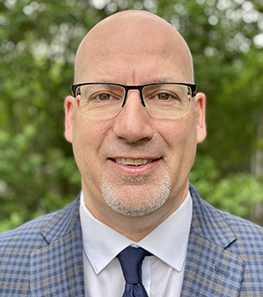
Bill Schuldt smiles into the camera with green foliage behind him.
Dear Friend,
I am excited to be welcoming participants back to our Denville and Ridgewood locations this month, and I’m looking forward to meeting more of the VLANJ community. (It was a pleasure meeting more than two dozen people over Zoom back in May.) While our virtual programming kept staff and students connected during the pandemic, there’s nothing like gathering in person, to learn with and support one another.
In my first months as president and CEO, I find myself impressed by the drive and commitment of our staff, students, and trustees. We are busy developing plans for robust offerings going forward, a combination of in-person and online classes. This will be a work in progress, as we learn what works and strike a balance for using our current resources.
We resumed in-person Better Health and Wellness classes this month, with COVID-19 protocols in place. Rather than have all students attend on a single day, we will host two weekly sessions, with roughly half of participants attending each. Everyone will be required to wear masks. As always, our goal is to keep us all healthy.
Virtual classes have been invaluable during the pandemic, and we were proud to roll out new programs for healthy aging. We have Atlantic Health System’s Morristown Medical Center Community Health Committee to thank for the grant that funds LIFT, STRIVE, and the newest addition, ARISE, a virtual speaker series which will feature a variety of topics designed to motivate and inspire people with vision loss to achieve their best selves.
I want to acknowledge a generous — and unexpected — bequest we recently received from the estate of a VLANJ supporter. We are honored to be remembered in her will. VLANJ is so grateful to donors who contribute monthly and annually but hope more supporters will also include us in their estate planning. Over VLANJ’s 78-year history, bequests have played an important role in our funding. We are establishing a legacy society so supporters can inform us of their intended gift, allowing us to plan accordingly.
Know that VLANJ’s work of empowering people with vision loss in all aspects of life could not happen without our supporters. I look forward to getting to know more of you in the coming months. Please feel free to reach out to me by phone or email with your ideas and questions. Wishing you well.
Sincerely,
Bill Schuldt
VLANJ President and CEO
wschuldt@vlanj.org
(973) 627-0055 ext. 1333
by Carly Eden Stokes | Aug 15, 2021 | Blog, News
For those who are blind or visually impaired, who “may not notice arrows on the floor directing foot traffic that have no texture to be felt,” such [COVID-19] safety measures “present additional obstacles for safely navigating the pandemic-era world.”
Read the full article by Well + Good about being visually impaired during the pandemic – and know that you and/or your loved ones are not alone in finding it difficult to navigate:
CLICK HERE
by Carly Eden Stokes | Jun 20, 2021 | Blog, News
Echolocation is shared by many species, including whales and dolphins – even people can learn how to use it!
Now, new research shows that both sighted people and those who are blind can learn how to echolocate using clicking noise, either from one’s own mouth, footsteps, or walking cane taps, after just 10 weeks of training.
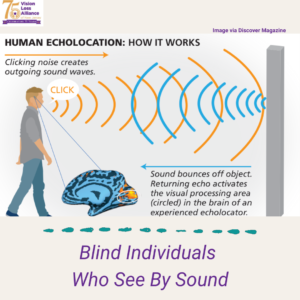
The VLANJ logo and an image via Discover Magazine depicting how human echolocation works is featured, with text that reads: “Human Echolocation: How It Works. Clicking noise creates ongoing sound waves. Sound bounces off object. Returning echo activates the visual processing area (circled) in the brain of an experienced echolocator.” Text below reads: “Blind Individuals Who See By Sound.”
by Carly Eden Stokes | May 9, 2021 | Blog, News
Ming Wu
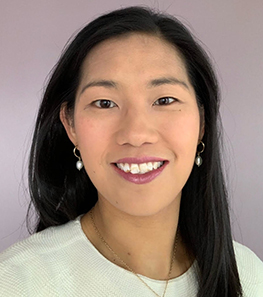
VLANJ Board Member Ming Wu.
Ming has spent most of her career working in business development and marketing in the legal sector. She has worked for international law firms in the UK and in Hong Kong. She has a BSc (Hons) Psychology from the University of Leeds. Originally from the UK, Ming now lives in New Jersey. In recent years Ming has volunteered for UK based non-profits, The Royal National Institute for the Blind and Wakefield District Sight Aid. Ming has a passion for improving the lives of people living with sight loss and raising awareness of related topics, which she writes about on her blog.
Frank Mortimer

VLANJ Board Member Frank Mortimer.
Frank worked in higher education publishing for over twenty-five years. He was the Director of Marketing, Higher Education, North America at Oxford University Press, a not-for-profit, mission-driven
institution, where he was responsible for all facets of their marketing operations for a $54 million portfolio of print and digital products across the United States and Canada. Frank is currently an adjunct instructor at the Cornell University Master Beekeeping Program, Vice President of the New Jersey State Beekeepers Association, and a Certified Master Beekeeper. Frank is the author of Bee People and the Bugs They Love, (Kensington Publishing, March 2021), which was reviewed by the New York Times, and
he has written multiple articles featured in the widely circulated Bee Culture Magazine. Frank also serves on Ridgewood, New Jersey’s Parks, Recreation and Conservation Board. Frank is married and lives in Ridgewood with his wife and three children.
Dora Meler
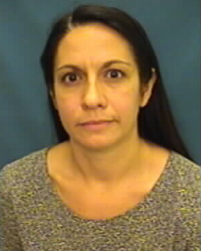
VLANJ Board Member Dora Meler
Dora has more than 37 years’ experience in the IT field implementing and running technology and product solutions for financial services firms. After earning a B.S. Degree in Computer Science from Queens College in New York, she enjoyed a full career within the global investment banking industry, working most recently as Vice President/Senior Technology Project Manager at Barclays in NYC before retiring in 2018. Despite being diagnosed with glaucoma in her late 20s and experiencing a slow, steady loss of vision in the years that followed, she has continued to pursue her many interests. These include world travel, learning new language and musical instrument skills, and enjoying the outdoors through camping, hiking, tandem cycling and cross-country skiing, all while following a healthy lifestyle including practicing daily meditation.
by Carly Eden Stokes | May 9, 2021 | Blog, News
It’s 2021 and over a year since New Jersey ordered the closure of businesses, including
nonprofits. Remember those first weeks of the pandemic? Frightening daily news accounts of mounting COVID-19 cases. Empty shelves and long lines at grocery stores. The Zoom learning curve. Fear of other people, yet a longing for human contact.
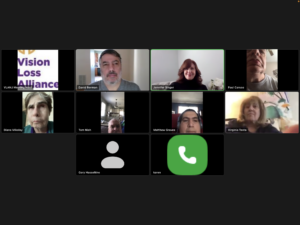
VLANJ students attend a virtual class.
Now imagine, if you will, what the pandemic has been like for people with vision loss, who
uniquely rely on touch and proximity to others to navigate and communicate. Public
transportation options cancelled. An inability to see 6 feet means you cannot maintain mandated
social distances, and rules are listed on signs you cannot read. You struggle to use online
shopping apps and virtual conferencing platforms that were not designed with vision impairment
in mind.
“A lot of our participants stayed home because they weren’t able to navigate the COVID-
pandemic world, and that heightened isolation. We looked for solutions that brought people
back together in a virtual environment,” said Vision Loss Alliance of New Jersey Program
Director Elsa Zavoda.
In response to the closure order, VLANJ quickly pivoted to online wellness classes, skills
training, and enrichment opportunities for adults with vision loss. We started by offering classes
in using the Zoom video conferencing platform and how to access various shopping apps to help
people obtain necessities such as food and prescriptions. We then moved to classes that helped
participants stay connected, share advice, and give one another support. Transportation was no
longer a barrier to participation.
Through these efforts, VLANJ’s enrollment increased three-fold in 2020, as people from across
the state and beyond logged in or called in to a growing list of virtual programs. About 200
people signed up for at least one offering — and most for two or more — over the winter
session.
Delores ‘Dee’ Eliassen had only recently given up driving before the pandemic, so she was
grateful when VLANJ went virtual. Dee states “Why it has been wonderful! The changes and
isolation that came in the last year from COVID have been incredibly stressful. It’s wonderful
that virtual learning has allowed me to do more than I was ever able to in the program. Now I
participate daily. I exercise, do Yoga, have organized my kitchen for safety and easy cooking,
and even meditate. Of course, I miss friends and the staff, but the Zoom meetings bring everyone
together and without the stress of transportation – there is so much I can do.”
Through VLANJ’s pivot to virtual programming, individuals with vision loss have sought and
found a community of support, education, and skills development. What we have seen in their
efforts to address COVID restrictions was a tremendous resiliency and a flexibility to embrace
new strategies to achieve their goals.






